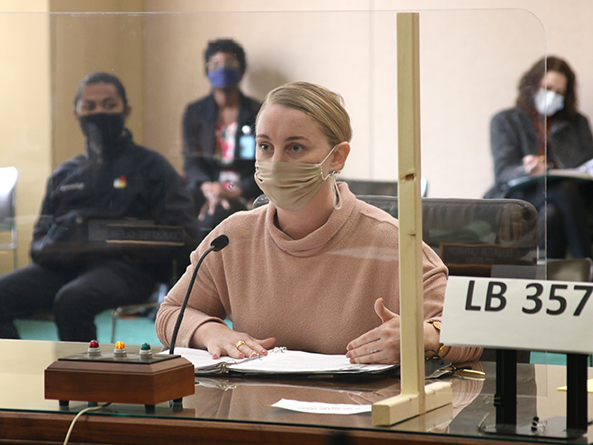Bill of rights proposed for youth in state care
Nebraska foster youth in out-of-home placements and in Youth Rehabilitation and Treatment Centers would have explicit, enumerated rights under a bill heard by the Judiciary Committee Jan. 28.
LB357, sponsored by Omaha Sen. Megan Hunt, would ensure youth are expressly informed of their rights at regular intervals, in age-appropriate language, by their respective caseworker.
Hunt said that making sure youth understand their rights upfront can help alleviate mistrust and reassure them that their development and well-being are important.
“When a system removes you from your home or puts you in an unfamiliar place, there is an inherent distrust of that system,” she said. “It’s essential that we’re doing everything we can as a state to ease these kinds of transitions.”
Under the bill, caseworkers would be required to provide written copies of a system-involved youth’s rights within 72 hours of their initial placement, again two weeks later and then on a quarterly basis.
The bill would ensure youth in placement have the right to attend or not attend religious services, be free from unreasonable search and seizure and be free from discrimination based on race, ethnicity, sex, gender, national origin, tribal membership, religion, mental or physical disability, gender identity or sexual orientation.
Youth would retain the right to a free education provided for by the state, in their original school if possible. Access to participation in developmentally and age-appropriate extracurricular, enrichment, cultural and social activities — and access to trauma-informed health care — also would be ensured.
Among other provisions, the bill also seeks to protect a youth’s familial bonds, and a young person who is pregnant or parenting would retain the right to make appropriate decisions for their child.
Laura Opfer, representing the Nebraska Children’s Commission, spoke in support of LB357. The bill’s provisions build on progress toward normalcy for youth in Nebraska, she said, by providing a multi-disciplinary system to ensure youth rights are protected and their voices are heard.
“When we take time to build relationships with youth and explain the [placement] process, we build engagement,” Opfer said. “When youth are engaged and informed, we strengthen their self-efficacy and gain their trust.”
Also testifying in support of the bill was Jacob McKirdy, who was placed in the foster care system as a young person. He frequently felt unloved and unsafe while in foster care, he said, and was unsure where to turn for help.
“If the caseworkers took just one minute to actually spend time and get to know the kids, it would make a big difference,” McKirdy said.
No opponents were present at the hearing and the committee took no immediate action on the bill.


